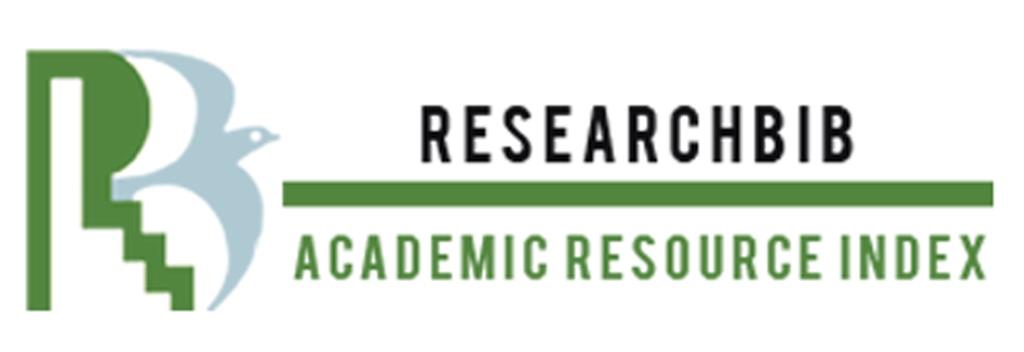NURTURING THE SPIRITUAL WORLDVIEW OF STUDENTS IN SYNCHRONY WITH PROFESSIONAL EDUCATION
Keywords:
Spiritual development. Professional education. Holistic education. Ethical grounding. Self-reflection. Meditation. Community service. Moral principles. Curriculum integrationAbstract
This article delves into the increasingly pertinent topic of integrating spiritual development within the framework of professional education. Recognizing the multifaceted nature of human development, it argues that preparing students for their professional lives demands more than just imparting technical knowledge and skills. It posits that nurturing a spiritual worldview is essential for fostering well-rounded individuals who are not only proficient in their careers but also possess a deep sense of moral and ethical grounding. The discussion outlines various strategies educational institutions can employ to embed spiritual principles into the curriculum, such as incorporating courses on ethics, providing opportunities for self-reflection and meditation, encouraging community service, and facilitating discussions on life's bigger questions. The article underlines the importance of a holistic education approach, asserting that such an integration helps students find meaning in their work, navigate the complexities of the modern world with empathy and integrity, and contribute positively to society. The author makes a compelling case for the seamless synchronization of spiritual development with professional education, emphasizing that the ultimate goal of education should be to develop not just competent professionals but also compassionate human beings.
This article delves into the increasingly pertinent topic of integrating spiritual development within the framework of professional education. Recognizing the multifaceted nature of human development, it argues that preparing students for their professional lives demands more than just imparting technical knowledge and skills. It posits that nurturing a spiritual worldview is essential for fostering well-rounded individuals who are not only proficient in their careers but also possess a deep sense of moral and ethical grounding. The discussion outlines various strategies educational institutions can employ to embed spiritual principles into the curriculum, such as incorporating courses on ethics, providing opportunities for self-reflection and meditation, encouraging community service, and facilitating discussions on life's bigger questions. The article underlines the importance of a holistic education approach, asserting that such an integration helps students find meaning in their work, navigate the complexities of the modern world with empathy and integrity, and contribute positively to society. The author makes a compelling case for the seamless synchronization of spiritual development with professional education, emphasizing that the ultimate goal of education should be to develop not just competent professionals but also compassionate human beings.
Downloads
References
Anderson, R. & Braud, W. (2011). Transforming Self and Others through Research: Transpersonal Research Methods and Skills for the Human Sciences and Humanities. Albany, NY: State University of New York Press.
Geula, K. "Emotional intelligence and spiritual development." Forum for Integrated Education and Educational Reform, Santa Cruz, CA, October. 2004.
Cadell, S., Regehr, C., & Hemsworth, D. (2003). Factors contributing to posttraumatic growth: A proposed structural equation model. American Journal of Orthopsychiatry, 73, 279.
Davidson, R.J., Kabat-Zinn, J., Schumacher, J., Rosenkranz, M., Muller, D., Santorelli, S.F., et al. (2003). Alterations in brain and immune function produced by mindfulness meditation. Psychosomatic Medicine, 65(4), 564–570.
Galek, K., Flannelly, K.J., Ellison, C.G., Silton, N.R., & Jankowski, K.R. (2015). Religion, meaning and purpose, and mental health. Psychology of Religion and Spirituality, 7(1), 1-12.
King, P.E. (2008). Research on spirituality, religion, and adolescent development: A sign of the times. Journal of Research on Adolescence, 18(1), 123–136.
Rogers, C. (1980). A Way of Being. Boston, MA: Houghton Mifflin Company.
Selman, R. (2003). The Promotion of Social Awareness: Powerful Lessons from the Partnership of Developmental Theory and Classroom Practice. New York, NY: Russell Sage Foundation.
Sharma, A., & Malhotra, D. (2017). Impact of mindfulness, self-esteem and resilience on career adaptation. International Journal of Education and Management Studies, 7(2), 201-207.
Tisdell, E. (2003). Exploring Spirituality and Culture in Adult and Higher Education. San Francisco, CA: Jossey-Bass.
















